HONG KONG: Japanese adults have their first heterosexual sexual experiences later than their counterparts in the United States and the UK, according to a new study.
Public health experts at the University of Tokyo found that sexual inexperience was on the rise in the country, with the percentage of women aged 18 to 39 who’d never had sex rising to 24.6% in 2015 from 21.7% in 1992.
The change was greater for men of the same age, with 25.8% virgins in 2015, up from 20% in 1992.
“Sexual inexperience has become a national concern in Japan, but previous reports did not examine the trend across different age groups and socioeconomic backgrounds,” said Peter Ueda, a public health researcher at the University of Tokyo and an author of the study, published Monday.
By comparison, surveys from the UK, the United States and Australia suggest that rates of heterosexual inexperience are between 1% to 5% of adults in or around their 30s, said the paper, which was published in the journal BMC Public Health.
The authors said that while it had been suggested that an increasing number of Japanese adults were sexually inexperienced, their study was the first to address this issue using nationally representative data.
The researchers based their nationwide estimate on data from seven national fertility surveys conducted over three decades. Each drew on the responses of between 11,553 and 17,859 adults 18 to 39 years old.
(Agencies)
KATHMANDU: While the Kathmandu Metropolitan City (KMC) has been talking about the smart city and smart waiting shed, city commuters in Kathmandu are compelled to stand on the crammed pavement and streets while waiting for crowded public transports.
Either the passenger sheds are in a dilapidated state or they are occupied by street vendors, or there are none causing sufferings for the commuters.
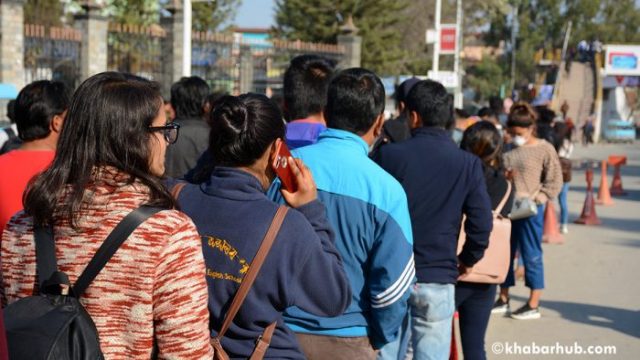
Despite government efforts to fix hitches the problems, passengers continue to face difficulties, mostly during peak hours.
Khabarhub came across serpentine queues at Ratna Park waiting for public transport. Moreover, there were cases of overloading along the routes such as Ratna Park-Narayanthan, Ratna Park-Tinkune route, among others.
“We have been experiencing this every day,” Ram Acharya of Budhanilakantha told Khabarhub, who was in the queue waiting for a public transport adding such a situation is common during morning and evening hours.
When asked to shed light on the experiences, most of the passengers said, “Imagine the situation during the rainy season.”
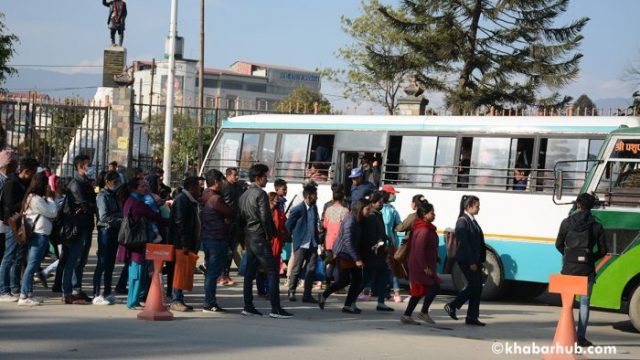
Many passengers have to say that public transport is so packed they even could not breathe properly. But they said the passengers have no option but to get into the overcrowded buses and micros.
Meanwhile, Spokesperson at the KMC, Ishwor Man Dangol said they are planning to establish smart waiting sheds considering the passengers’ trouble.
“We have formed a separate team to study about the location and the condition of the sheds and submit a report,” he said adding, “The team will submit the report in a week.”
The smart waiting sheds will have all information such as the arrival and departure of buses, routes, and fare, among others.
KATHMANDU: Influenza has claimed the lives of eight Kathmanduites in the last 45 days and health officials say the infection in on the rise.
Data collected by Khabarhub on Wednesday has revealed that as many as eight confirmed patients of seasonal flu have been reported.
Director General at the Directorate at the Epidemiology and Disease Control Division, Dr. Bibek Kumar Lal, informed that influenza has claimed the lives of eight people in the last one and a half months.
Doctor Sher Bahadur Pun at the Teku-based Sukraraj Tropical and Infectious Disease Hospital in Kathmandu informed that a considerable number of patients, mostly fearing of swine flu, visit the hospital every day.
According to him, the flu is a contagious respiratory illness spread mainly by influenza viruses that infect the throat, nose, throat, and sometimes even the lungs.
Flu is different from a cold. People who have flu feel some or all of the symptoms such as fever, cough, sore throat, runny or stuffy nose, body aches, headache, chills, fatigue, and even diarrhea or vomiting.
“The initial impression that the patients visiting him suspect of being infected with swine flu,” Dr. Pun told Khabarhub, which he said, is not true. According to him, the influenza season typically runs from October to May, peaking in February.
Hospital sources said as many as 1,334 flu suspects visited the hospital in the last five consecutive weeks. Among them, 567 have been diagnosed with AH1 N1. Likewise, 23 have been diagnosed with flu H3 and 73 with influenza B.
Doctors said a significant number of patients visit the hospital each day for the treatment of such flu-like cases. According to Dr. Pun, most of the patients complain of symptoms of dry cough, high fever, weakness, sore throat, headache, runny nose, fatigue, diarrhea, which are mostly associated with the swine flu virus.
Doctors suggest that people having such symptoms should drink plenty of clean water and liquids.
Flu Symptoms
Flu is different from a cold. People who have flu feel some or all of the symptoms such as fever, cough, sore throat, runny or stuffy nose, body aches, headache, chills, fatigue, and even diarrhea or vomiting.
How Flu Spreads
Doctors say flu viruses spread mainly by tiny droplets made when people with flu sneeze, cough, or talk.
Preventive measures
Doctors suggest that people should follow preventive measures to avoid flu. Isolation from an infected person is required.
Doing something genuine today? Being a little bit dramatic and expressive for your partner is a good vibe. Giving a romantic gift today on this special Valentine’s Day will sure to fuel the fire.
If you are yet to buy a deserving gift to you Valentine, make a slapdash effort to get Teddy Bears. If not, chocolates, simple toys, red roses or a bouquet will work just fine. These gifts will please your partner, for sure and that the day goes off without a hitch.

Another idea would be to go for a nice dinner together.
The history of Valentine goes like this: The day may have taken its name from a priest named Valentine, who was martyred about 270 CE by the Emperor Claudius II Gothicus. Legends have to say that, the priest Valentine signed a letter saying “From your Valentine” to the jailer’s daughter, whom he had befriended and, healed from blindness.
Likewise, several other accounts say that it was St. Valentine of Terni, who was a bishop, for whom the holiday was named.
Another story says that St. Valentine defied the emperor’s orders and secretly married couples to spare the husbands from war. That is why his feast day is associated with love.

A day just before Valentine’s Day, February 14, is observed as Kiss Day. Kiss represents love and affection. Kisses can be different to express one’s love.
On this day, partners, especially youngsters, take the opportunity to express their love in a romantic way.
It is said that a kiss, like a picture, can speak a thousand words. Mastering the art of kissing is, for a first-time kisser, a Herculean task. The Kiss Day started in 2006.
KATHMANDU: Shree Panchami, also known as Saraswati Puja, was observed across the country on Sunday by worshiping Saraswati, the goddess of knowledge and wisdom.
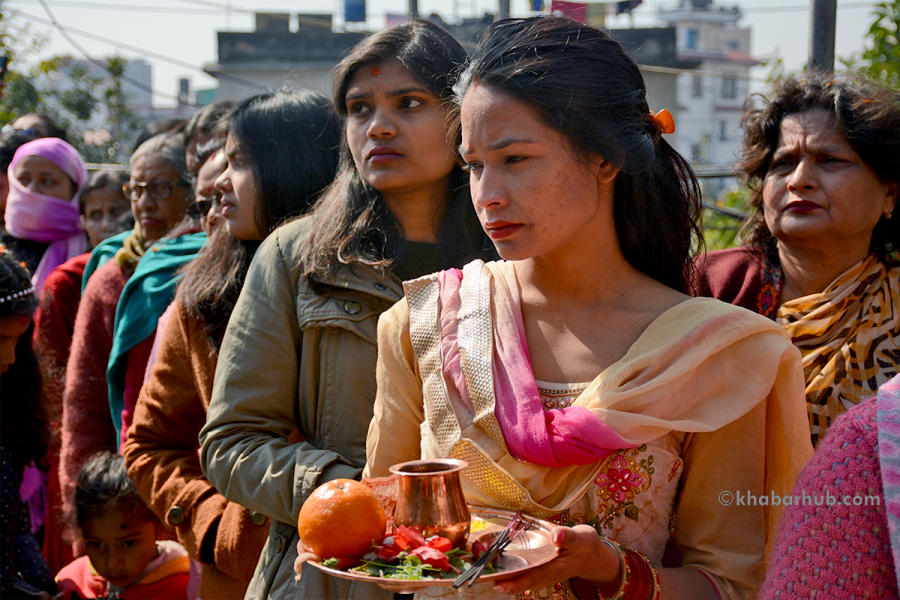
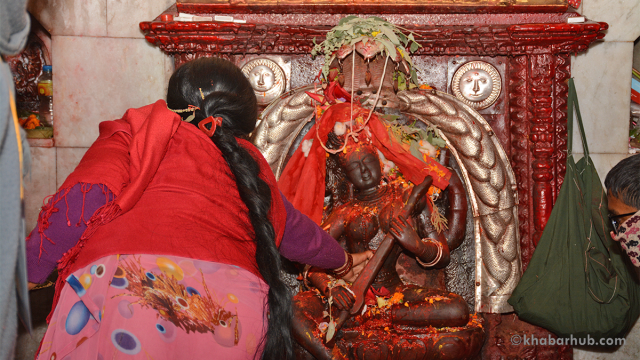
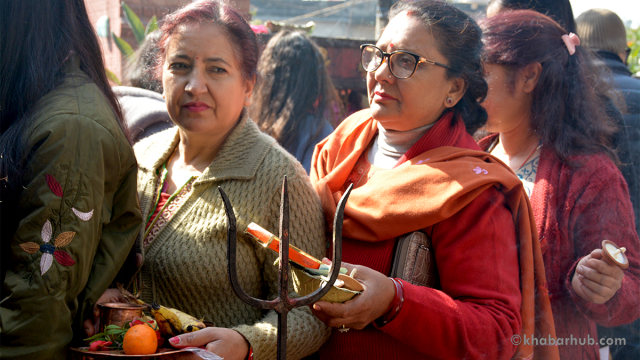
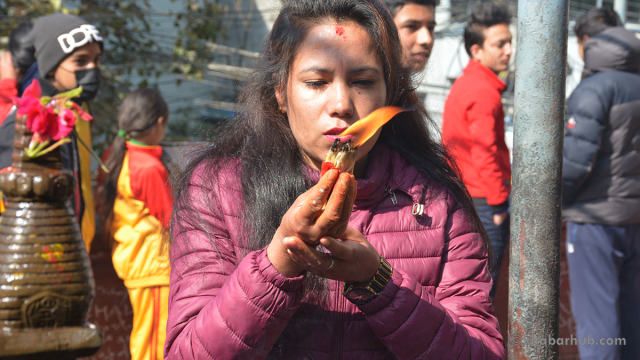
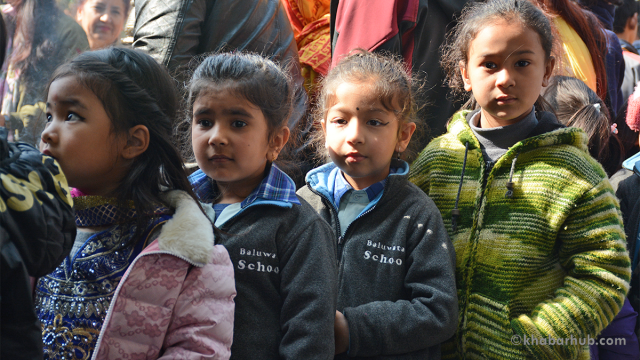
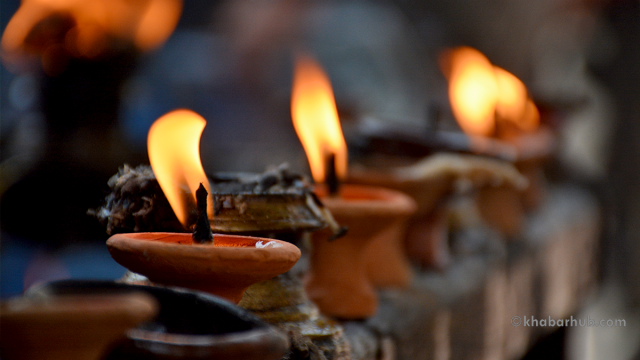
The day is celebrated every year on the fifth day of the waxing moon of the Nepali month of Magh.
KATHMANDU: Members of the Tamang community on Tuesday celebrated Sonam Lhosar with fervor in Kathmandu. Several programs were organized across the nation on the occasion.
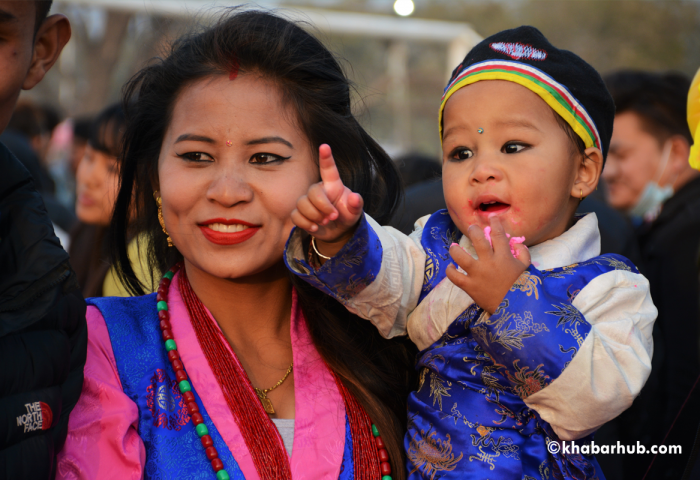
Celebrating Sonam Lhosar in traditional attire in Kathmandu
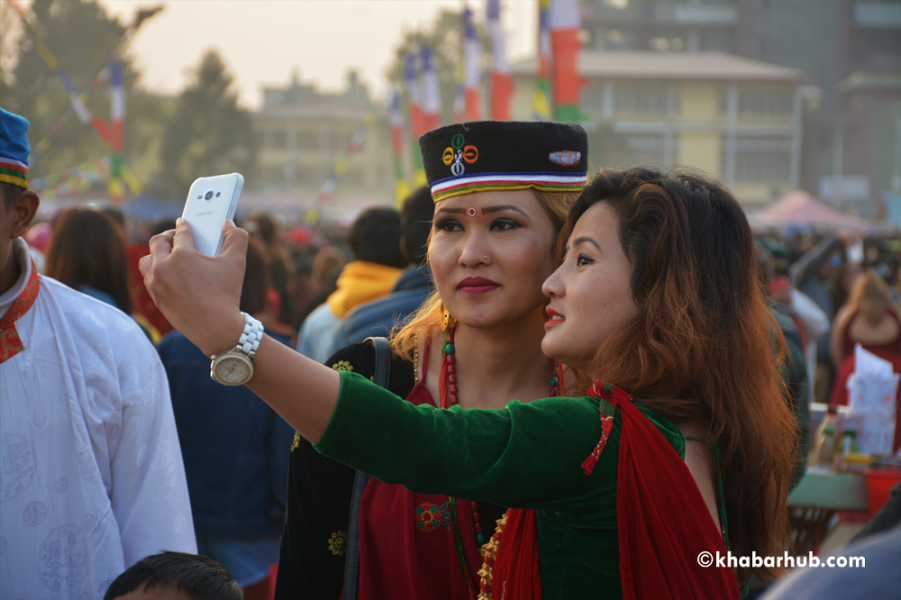
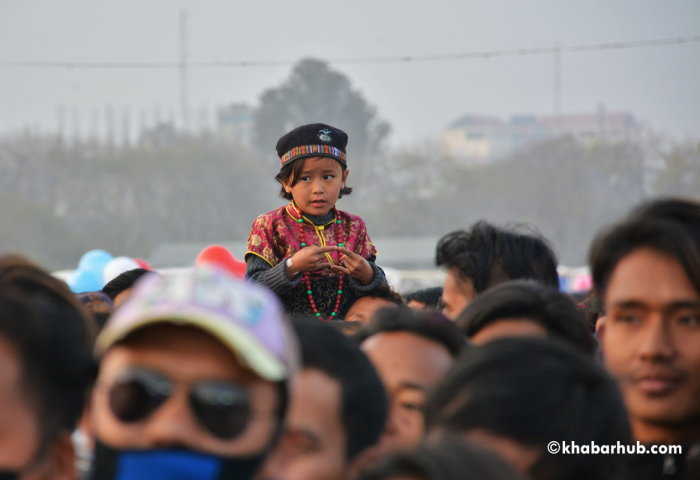
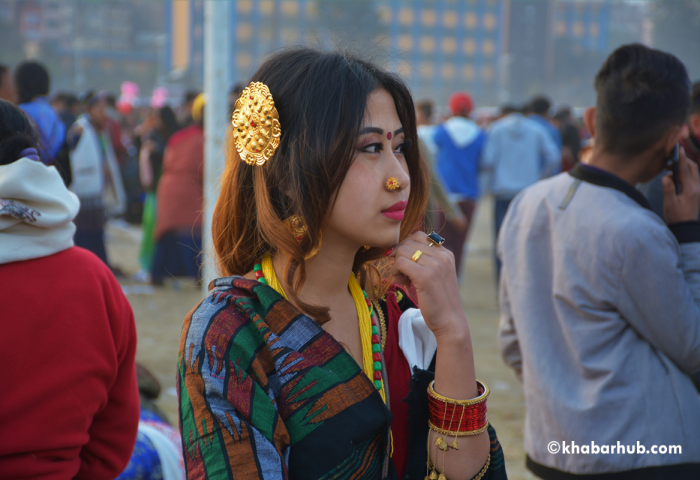
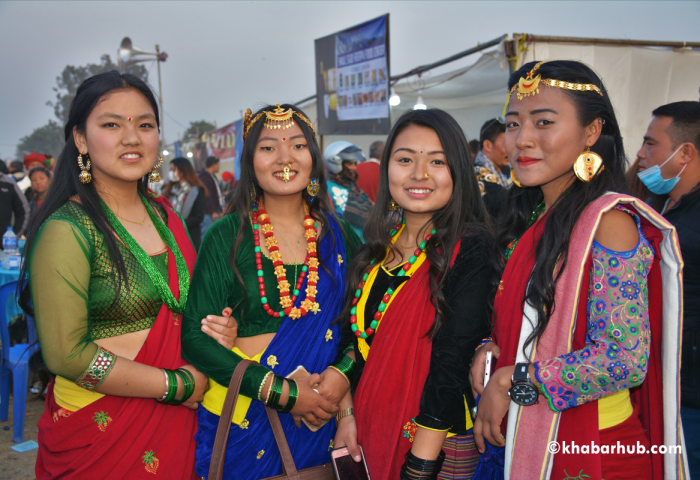
Women clad in their traditional attires pose for a portrait during Sonam Lhosar celebration in Kathmandu.
If we portray bad images for our religious and civilized sense, don’t others think we lack civil sense?
Civic sense has been an issue that has been widely discussed in South Asian countries, including Nepal. In fact, this is one of the topics that most Nepalis do not care much for it.
There is no denying the fact that Nepalis lack a sense of responsibility or civic sense.
This sort of attitude is widespread across all ranks and sections because this is an issue that does not come from just strict enforcement of the law. It needs a sense of responsibility or a sense of belonging and accountability.
Nepalis are accustomed to blaming the government for all mess. People are so more driven toward a personal goal that even educated or well-to-do folks forget their ethics.
Yes, people pay taxes but this does not mean that they can spit, litter, urinate or throw garbage everywhere. You don’t have to go too far.
Just stroll inside the premises of Singha Durbar, the government’s secretariat to witness and experience spit marks, the stink of urine, graffiti, garbage, etc. Kathmandu, the country’s capital, has been one of the victims of this menace.
Question is: who is responsible? Pinning everything on the government is easy. But have we ever asked ourselves and our civic sense? Perhaps not!
Let me cite some examples. Roads are dirty because people dirtied it since we don’t throw garbage in dustbins.
Streets are jammed because we don’t follow lanes and traffic rules because everyone, including drivers and pedestrians, assumes that the street belongs to them.
There is sound pollution because we honk horns gratuitously. There is environmental pollution because we smoke in public places because the government has not designated smoking zones.
The list can go on from peeing near the roadside, not waiting in the queue, spitting or littering everywhere, not using zebra-crossing or over-head bridges, not helping physically-unable people, not respecting others’ rights, not being polite to elders, etc.
In fact, this hideous attitude is not just limited to so-called lower class people but even so-called members of the higher class or well-off society tend to forget their moral responsibility.
Whether it is on the streets, banks, cinema halls, bus stops, parks, public places, (the list goes on) the majority of the Kathmanduites have absolutely no respect for public property. This is one of the reasons why our streets get clogged up during monsoon.
When civic sense is absent in citizens, it leads to problems. In Nepal, the primary cause is that people disregard law because there are no instances of people being punished for committing civic offenses.
Local administration cannot tackle these issues since it is overshadowed by “who cares” attitude! Problems begin when we think: “When our homes and courtyards are clean, why bother about throwing garbage on the streets?” People are so driven towards personal goals to care about civic sense.
Therefore, it is high time that students are well-informed about civic sense both in schools and homes. Good parenting can be the other major factor to help a child develop a sense of responsibility and societal norms.
Civic sense does not just come from through enforcement of the law. It is all about a sense of being responsible and a sense of ownership. It is all about social ethics, love and respect, politeness, responsibility, showing good etiquette – not just keeping our roads or public property clean.
Being sexy doesn’t mean a lady should wear less clothing. Mind it, exposing tons of skin also doesn’t translate to sexy.
There was a time when being sexy was all about exposing some body parts, or make-over. However, with the changed time and context, being sexy has something more to do with je ne sais quoi, meaning I do not know much since real sexiness is in the eye of the beholder!
Sexiness, for some, can be all about tiny waist looks or body shape. For others, sexiness can be more to do with aura. Therefore, being sexy in your own way can be the best appealing factor, which means accepting oneself just the way she is.
Finding clothes that go with your body type is the best way to look and feel sexy. For this, working on your personality and investing time in yourself is vital. Grooming is essential.
One of the extremely powerful tools is to smile. Cleaning up properly, taking good care of skin, hair, and smelling great is important besides taking good care of your mind.
Don’t be surprised; for some, red lips are sexy. Agreed, since red means confident, bold, determined, and strong; a lady looks bold, confident and sexy when she wears red lipstick. Another simple tip to look sexy is wearing high heels, which helps you to stand tall and walk elegantly.
What about showing off your shoulders? In fact, showing off a little skin (the collarbone) makes a lady feel sexy. Sometimes, exposing your glossy lips could be a sexy gesture.
However, a gentler reminder: the majority of men prefer a more natural look. When it comes to hair, men prefer that women wear their hair down because they think they look more approachable with their free-flowing hair.
(Agencies)